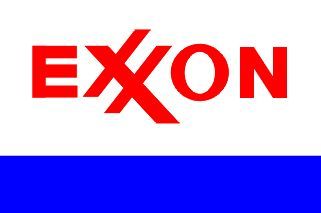The world’s third largest company by revenue, Exxon, says it is complying with US sanctions against Russia and is winding down operations at its exploration well in the Kara Sea, a $700 million project.
In a press release today, Exxon wrote:
“The U.S. Treasury Department, recognizing the complexity of the University-1 well and the sensitive Kara Sea arctic environment, has granted a license to ExxonMobil and other U.S. contractors and persons involved to enable the safe and responsible winding down of operations related to this exploration well.”
“The license recognizes the need to protect the safety of the individuals involved in these operations as well as the risk to the environment. All activities related to the wind down will proceed as safely and expeditiously as possible.”
Exxon had planned to drill the well between August and October. With the latest extended sanctions, US workers have been asked to leave Russian Arctic projects by September 26th.
Whether the US Treasury Department’s license allows Exxon to stop drilling on the pre-planned schedule is unclear.
American-Russian face off casualty
There have been complaints from European Union businesses that it is not realistic to follow the US in anti-Russian sanctions because America’s commercial exposure to Russia, compared to Europe’s, is minimal.
Last week, Washington and Brussels intensified sanctions against Russia after NATO presented photographic evidence showing Russian military equipment and personnel crossing the border into Ukraine’s rebel territory. Russia denies the accusations.
Exxon is an example of a US casualty in the Allied-Russian sanctions policy
With the $700 million project being either abandoned or placed on a long-term backburner, Exxon is one example of a US commercial casualty of the Allied-Russian face off.
The Texan oil giant started transporting a rig (West Alpha) from Norway to the Arctic in July. The company expects to make a major oil discovery in the area. In 2012, it signed a $3.2 billion agreement with Rosneft to develop the region.
Russia’s long-term production hopes affected
The drilling suspension is not expected to undermine oil production for Rosneft, Exxon’s Russian partner, or Exxon itself, since it was an exploration project seeking out oil in the Arctic field, determining whether pumping oil in the region might be economically feasible.
However, the drilling suspension, if it is not reactivated soon, will damage Russian future production.
The new US sanctions are applicable to Russia’s five major oil & gas firms, including Gazprom, Gazprom Neft Lukoul, Rosneft and Surgutneftegas.
Richard Keil, an Exxon Mobil spokesman, said his company had asked for some time to safely remove the equipment from the exploration site. He said the Treasury Department agreed.
Mr. Keil said:
“The license recognizes the need to protect the safety of the individuals involved in these operations as well as the risk to the environment. All activities related to the winding down will proceed as safely and expeditiously as possible.”
Exxon’s oil production operations in Russia are relatively small. Its main business is a joint venture with Japan’s Sodeco, Rosneft, and India’s O.N.G.C. That operation will continue. In this project, Exxon’s production portion is just 50,000 barrels per day, compared to its global 2.1 million barrels per day.
Sanctions bad for Russia and Exxon
The latest sanctions, however, undermine the company’s long-term ambitions in Russia, particularly in the Arctic, where production potential is enormous.
Russia is said to have massive reserves of oil. It is one of the world’s largest crude producers and Europe’s number one supplier. However, its reservoirs are dwindling and it desperately needs to seek out new sources.
Exxon is also facing declining production and sees the latest sanctions as a serious setback to its plans. Last year, worldwide production was at a 4-year low. The rate at which it is replacing lost output with new discoveries has fallen alarmingly.


